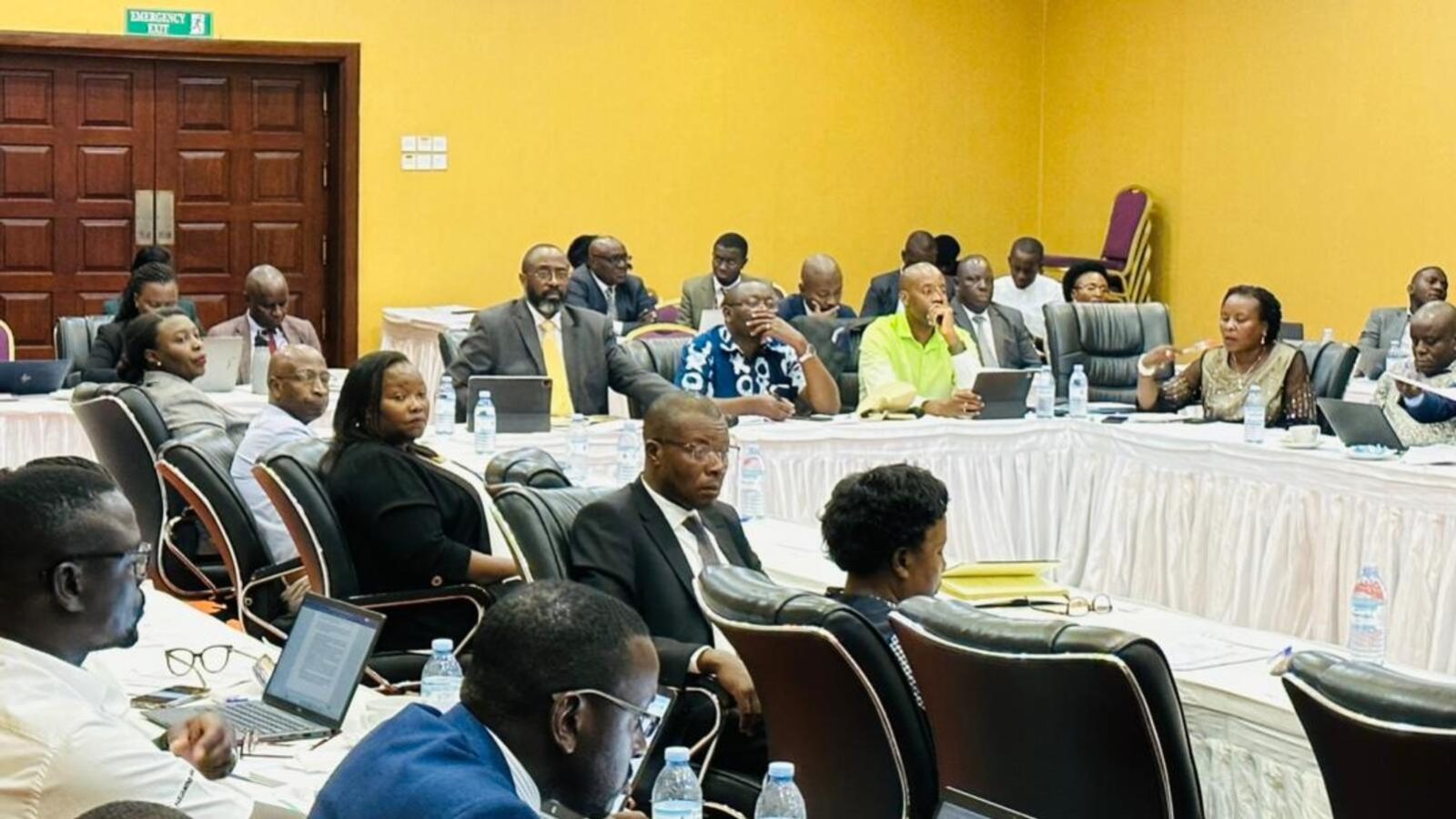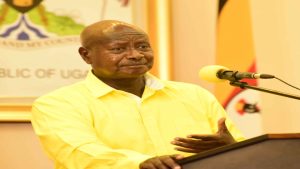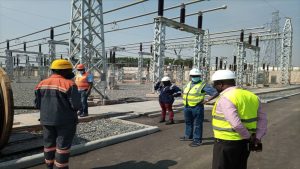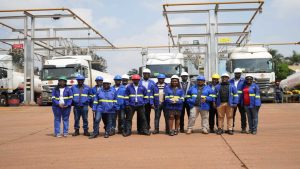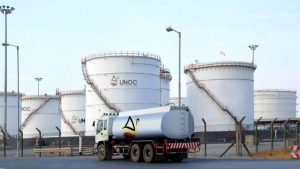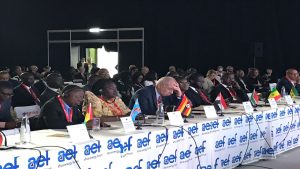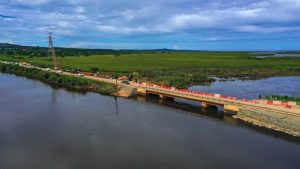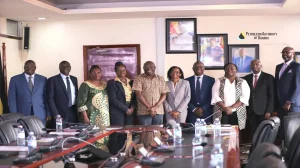Share
During a three-day retreat at Speke Resort Munyonyo, members of the Environment and Natural Resources Committee of Parliament will provide crucial updates on the status of initiatives run by the Ministry of Energy and Mineral Development.

Participants from a wide range of organizations, including the Ugandan Parliament, the Ministry of Energy and Mineral Development, the Petroleum Authority of Uganda (PAU), the Electricity Regulatory Authority (ERA), and other significant actors in the country’s energy industry, have convened.
On Friday, which served as the retreat’s first day, there was an inclusive introduction that emphasized a shared commitment to establishing a cohesive approach to resource management and environmental stewardship.
The Committee Chairperson, Dr. Emmanuel Otiam Otaala, provided insightful opening remarks for the event. Dr. Otaala clarified the development of the committee and emphasized the smooth incorporation of new members. He emphasized the sector’s critical contribution to Uganda’s economic transformation and elevation to middle-income status. The appeal for cooperation and solidarity between the committee and the sector reverberated throughout the meeting.
Ruth Nankabirwa Ssentamu, the minister of energy and mineral development, congratulated the newly appointed committee members and emphasized the value of a strong working relationship between the committee and the executive branch.
The minister’s emphasis on orientation and technical proficiency highlighted his dedication to efficient government and resource management.
A thorough description of the organizational structure of the ministry was provided by Ms. Irene Pauline Bateebe, permanent secretary of MEMD. She explained the duties of various bureaus, including those for Energy Efficiency and Conservation, Nuclear Energy, Electric Power, Renewable Energy, Rural Electrification, Petroleum Exploration, Midstream Petroleum, Petroleum Supply, Mines, Geological Survey, Geothermal Resources, Finance and Administration, as well as Sector Planning and Policy Analysis.
Participants learned about the ministry’s involvement in sustainable development and resource exploitation for minerals and energy. The discussion focused on the 10 agencies’ cooperation with MEMD to control and carry out various programs and activities.
The event examined Uganda’s energy situation and presented fresh plans for managing electricity, oil, and minerals while highlighting the country’s dedication to development and sustainability.
Understanding the Ministry of Energy and Mineral Development’s organizational structure was made easier by the session. Participants understood how several departments contribute to sustainable development, exposing the complex teamwork necessary for efficient governance.
A thorough dive into the petroleum industry was provided by the Petroleum Session, which was presided over by PAU Board Member Mr. Adrian Bukenya. Presentations by prominent individuals including Mr. Honey Malinga and Ernest N.T. Rubondo revealed the policy, legal, and regulatory framework supporting Uganda’s petroleum program. The dynamics of the industry were thoroughly investigated, with an emphasis on upstream activities, exploration, and commercialization.
Mr. Philips Obita’s insights, who was speaking on behalf of the Uganda National Oil Company (UNOC), added to the lively discussion. His analysis of oil and gas projects clarified UNOC’s function as an investor along the petroleum value chain and emphasized the significance of business alliances for long-term development.
Peter Lokeris, Minister of State for Mineral Development, and Okaasai S. Opolot, Minister of State for Energy, are present.
As the session progresses, participants eagerly ingest information and forge connections that will enable them to direct Uganda’s natural resources and energies in the direction of a successful and sustainable future.
